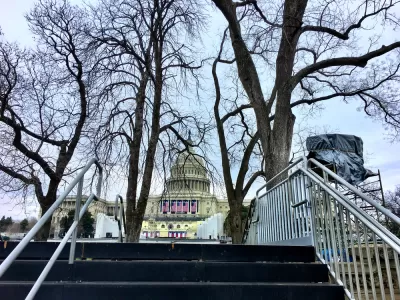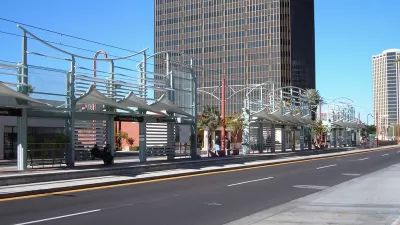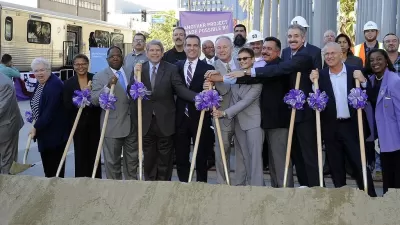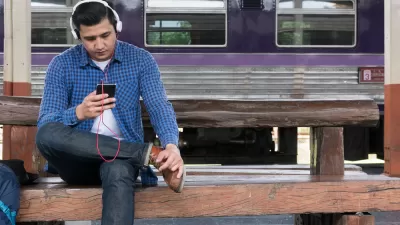The chair of the House Committee on Transportation and Infrastructure used the word "unlawful," when describing the tardy delivery of allocated capital investment funding by the Federal Transit Administration under the Trump administration.

Angie Schmitt sums up the dysfunction in Washington, D.C. on the matter of transit funding, as exposed in a Congressional hearing this week:
The Trump Administration has been starving shovel-ready transit projects of money that Congress had specifically made available — an 'unlawful' form of foot-dragging that has cost local transit providers more than $850 million, according to the latest Congressional report that again confirms what transit agencies and advocates have long known.
Wait time for transit funding has doubled under the Trump administration, according to a report that uses data from the federal Transit Administration. "All that waiting is expensive. Congressional analysts estimate the Trump Administration slowdown has led to $845 million in extra costs for transit agencies," according to Schmitt.
Transportation for America first raised alarms about the tardiness of transit funding allocated by Congress and then held up by the Trump administration, and the problem has persisted throughout the administration's tenure.
"In a Congressional hearing on Tuesday, House Transportation and Infrastructure Committee Chairman Peter DeFazio (D-Oregon) called the Trump Administration’s actions 'unlawful,'" according to Schmitt.
Patrick Sisson provides additional details of Tuesday's hearings and the tardy actions of the Federal Transit Administration in a separate article for Curbed.
The debate goes on as to whether the funding delays are the result of transit antagonism by the Trump administration, incompetence by the Trump administration, a broken and inefficient system—or all three. The fact remains that transit funding was delivered in half the time under the previous administration.
FULL STORY: President Trump Has Starved Transit Agencies of $854M

Planetizen Federal Action Tracker
A weekly monitor of how Trump’s orders and actions are impacting planners and planning in America.

Chicago’s Ghost Rails
Just beneath the surface of the modern city lie the remnants of its expansive early 20th-century streetcar system.

San Antonio and Austin are Fusing Into one Massive Megaregion
The region spanning the two central Texas cities is growing fast, posing challenges for local infrastructure and water supplies.

Since Zion's Shuttles Went Electric “The Smog is Gone”
Visitors to Zion National Park can enjoy the canyon via the nation’s first fully electric park shuttle system.

Trump Distributing DOT Safety Funds at 1/10 Rate of Biden
Funds for Safe Streets and other transportation safety and equity programs are being held up by administrative reviews and conflicts with the Trump administration’s priorities.

German Cities Subsidize Taxis for Women Amid Wave of Violence
Free or low-cost taxi rides can help women navigate cities more safely, but critics say the programs don't address the root causes of violence against women.
Urban Design for Planners 1: Software Tools
This six-course series explores essential urban design concepts using open source software and equips planners with the tools they need to participate fully in the urban design process.
Planning for Universal Design
Learn the tools for implementing Universal Design in planning regulations.
planning NEXT
Appalachian Highlands Housing Partners
Mpact (founded as Rail~Volution)
City of Camden Redevelopment Agency
City of Astoria
City of Portland
City of Laramie





























